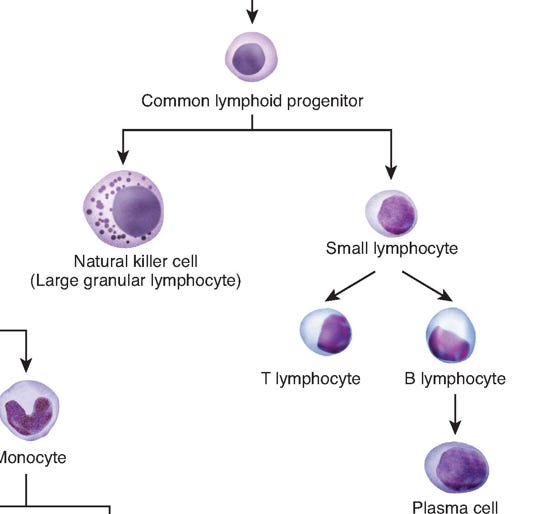The Potential Benefits of Proteolytic Enzymes to Help Manage Rheumatoid Arthritis
People with RA often have restricted diets. Check this out!
Rheumatoid Arthritis (RA) is a chronic autoimmune disorder that predominantly affects the synovial joints, leading to progressive joint destruction and disability. Traditional treatment modalities have primarily focused on anti-inflammatory medications and immunosuppressants. However, the exploration of complementary therapies, such as proteolytic enzymes, has gained momentum in recent years. This article aims to provide a comprehensive overview of the potential benefits of proteolytic enzymes in managing RA, backed by scientific evidence and clinical trials.
What are Proteolytic Enzymes?
Proteolytic enzymes, also known as proteases or peptidases, are enzymes that catalyze the breakdown of proteins into smaller peptides or amino acids. They are naturally occurring enzymes found in the digestive system, certain foods, and available as supplements. The enzymes work by breaking down protein structures, which can be beneficial in inflammation and tissue damage. They have a wide range of medical applications, from aiding digestion to wound healing1.
Key Reference: Serratiopeptidase: Insights into the therapeutic applications
The Immunopathogenesis of RA
RA is characterized by the immune system mistakenly attacking the body's tissues, primarily affecting the synovial joints. This leads to chronic inflammation, pain, and eventually joint damage. The role of proteinases and their receptors in the inflammation and pain associated with RA has been a subject of extensive research2.
Key References:
Proteinases and their receptors in inflammatory arthritis - Nature
Proteinases and their receptors in inflammatory arthritis: an overview
Consider signing up for The Biology of Immunology with Dr. Lyons-Weiler, January 2024.
Clinical Evidence: Proteolytic Enzymes in RA
Several clinical trials have explored the efficacy of proteolytic enzymes in managing RA symptoms. For instance, Serratiopeptidase, a proteolytic enzyme, has been studied for its anti-inflammatory effects and its ability to reduce pain and improve mobility in RA patients3.
Key Reference: Serratiopeptidase: Insights into the therapeutic applications
Comparative Analysis with Conventional Treatments
Conventional treatments for RA include nonsteroidal anti-inflammatory drugs (NSAIDs), corticosteroids, and disease-modifying antirheumatic drugs (DMARDs). These treatments, while effective, often come with a range of side effects, including gastrointestinal issues and increased risk of infections4. Proteolytic enzymes offer a potentially safer option with fewer side effects and can be more cost-effective.
Key Reference: Pathogenic Role of Immune Cells in Rheumatoid Arthritis
Future Research and Recommendations
While the existing body of research is promising, there are still gaps that need to be filled. More randomized controlled trials are needed to establish the long-term safety and efficacy of proteolytic enzymes in RA patients. Healthcare providers should consider proteolytic enzymes as a part of a comprehensive treatment plan for RA, especially for patients who are looking for alternative therapies5.
Key Reference: Proteinases and their receptors in inflammatory arthritis: an overview
Conclusion
Proteolytic enzymes offer a promising alternative or adjunct treatment for RA. Several studies support their efficacy and safety, making them a viable option for both healthcare providers and patients to consider. As the body of evidence grows, proteolytic enzymes could become a mainstay in the management of RA, offering a safer and potentially more effective treatment option.
Citations
Serratiopeptidase: Insights into the therapeutic applications
Proteinases and their receptors in inflammatory arthritis - Nature
Serratiopeptidase: Insights into the therapeutic applications
Proteinases and their receptors in inflammatory arthritis: an overview







Autoimmune disorders is the name given to unrecognized stealth infections (there are always exceptions). Enzymes strip away the protective biofilm the organisms use to protect themselves. WIthout the protection the immune systen has a chance to deal with the infection better than it did with all that biofilm running interference. Lyme disease is always my favorite organism to blame but we do know mycoplasma infections are associated with RA.
Can any of you in the comments give me some ideas about where to find products with beneficial proteolytic enzymes in them? My mom's arthritis is so bad, and nothing she's tried so far helps. My son took nattokinase after he developed a sudden-onset arrythmia in late 2022, and it seems to have helped. What he took (Spike Support is the product name) included serropeptase and I think black seed extract... It's something The Wellness Company sold that I learned about from Peter McCullough, MD. I'm wondering if it might help my mom's hands.